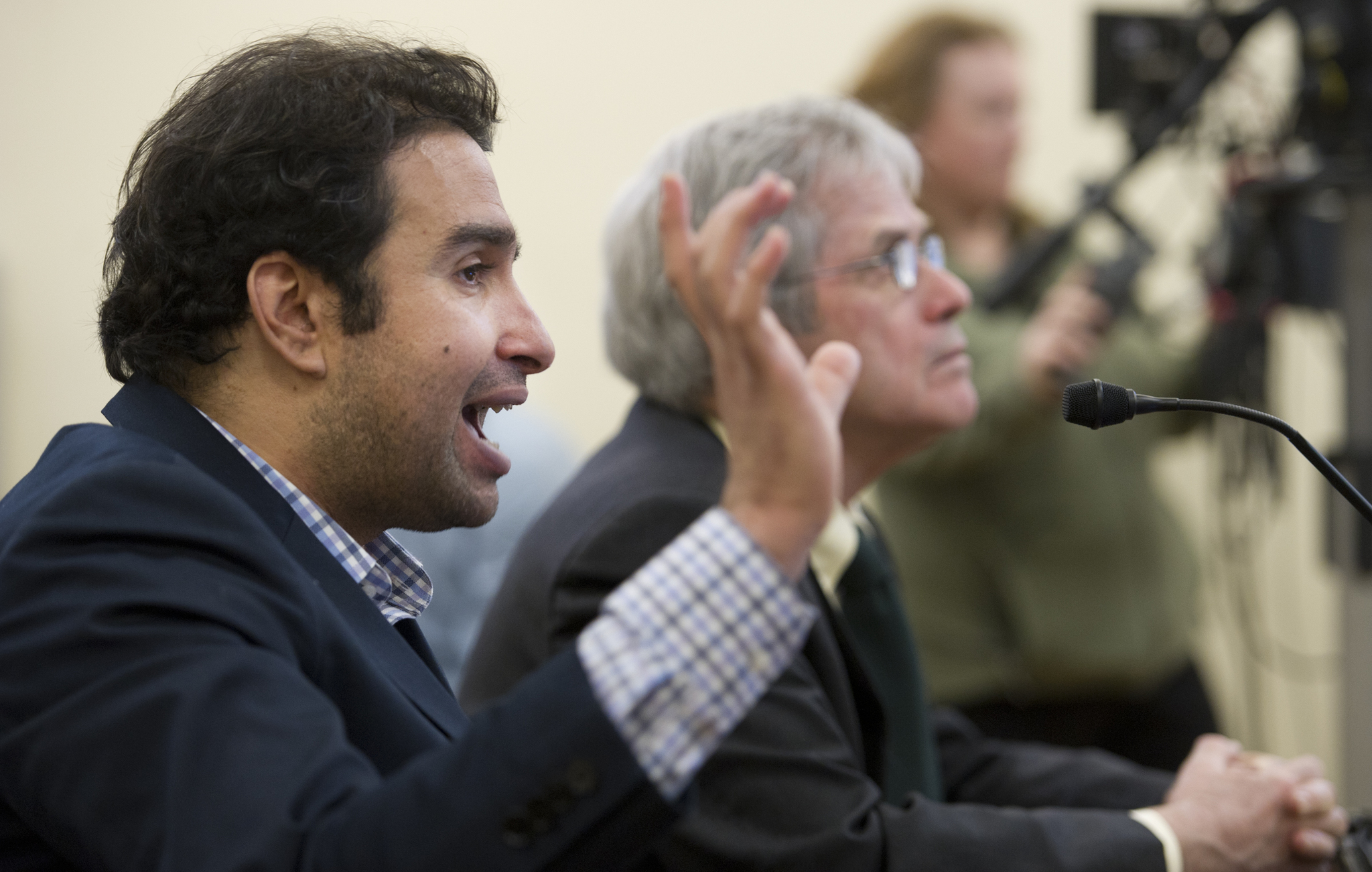State, university and private economists warned lawmakers this week that Alaska’s recession will last through 2019 — and possibly longer, depending on the actions taken by the Legislature.
The grim forecast was provided Wednesday and Thursday in extended hearings of the Alaska’s Senate’s Labor and Commerce Committee.
“This is our Great Recession,” said Mouhcine Guettabi, a University of Alaska economics professor at the Institute for Social and Economic Research in Anchorage.
“We expect we will lose 6-7 percent of the jobs in the state of Alaska before we get through this,” said Jonathan King of Northern Economics, a private firm.
That would make the current recession — the fourth in Alaska since 1970 — even more serious than the “pipeline bust” when construction ended on the trans-Alaska Pipeline System.
In 2016, according to figures provided by the Alaska Department of Labor and Workforce Development, the 49th state lost about 2 percent of its jobs.
“That’s the most job loss we’ve seen since the ’80s,” said Dan Robinson, chief of research and analysis for the Department of Labor.
Robinson’s research division predicts another 2.3 percent decline in 2017 but didn’t offer a prediction beyond that.
Guettabi offered the latest forecast from ISER, which suggests a 2.2 percent decline in 2017, a 0.6 percent decline in 2018, then slight growth — about 0.2 percent — in 2019.
ISER’s estimate, however, doesn’t include any actions the Legislature takes to balance the state budget this year. ISER’s figures act as if the state deficit didn’t exist, and the Legislature wouldn’t have to cut Permanent Fund Dividends, raise taxes, or cut government spending.
Alaska is facing a $3 billion annual deficit, and the state’s available savings accounts are running low. Action — significant action — is expected this year.
Cutting state jobs would be the Legislature’s worst choice, Guettabi suggested. For every $100 million saved in the state budget by job cuts, ISER expects between 1,400 and 1,700 people to lose their jobs. That’s because in addition to the direct layoffs, there’s fewer people spending money in stores — which would require those stores to lay off people as well.
That’s already happening in Alaska; in 2015 and early 2016, job losses were principally in the oil and gas sector and in state government. In later 2016, job losses started spreading to other sectors of the economy, such as retail.
“A government employee losing his or her job means they’re spending less money on goods and services produced by the private sector,” Guettabi said.
ISER estimates there’s less of an impact if the state cuts employee pay rather than laying off workers. Between 450 and 730 Alaska jobs would be lost for every $100 million cut from the state budget via pay cuts.
There’s a similar impact for new taxes and even cuts to the Permanent Fund Dividend.
Each of those options acts as a pay cut, not a direct job cut.
King suggested it might make sense to think of the scenarios in terms of homes. If someone loses their job, they might have to move elsewhere and vacate their current home. If someone takes a pay cut or has to pay a new tax, they might not be able to afford to repaint the home, but they’re still living in it.
The Northern Economics analysis offered three projections for what happens if the Legislature cuts the PFD, if it imposes a new tax, or if it cuts $1 billion from the budget.
None of these options are sufficient alone to balance the state deficit.
In both the tax and cut-PFD scenarios, the recession bottoms out in 2019 with losses of about 25,000 jobs total, and only gradually recovers afterward.
In the cuts-only scenario, the recession lasts until 2020 and goes much deeper: 33,000 jobs would be lost.
Even worse, Alaska’s population (under all three scenarios) falls by more than 30,000 people between 2017 and 2026, the end of the forecasting period.
The forecasts offered by Robinson, Guettabi and King are speculative, they cautioned.
King suggested that a single tweet by President Donald Trump could send oil prices climbing — at least in the short run. None of the economists expect a significant rise in oil prices over the long term.
There’s also the threat of further negative outcomes. One of the few significant bright spots in Alaska’s economy has been the health care sector, which has grown substantially since Obamacare was enacted, and particularly since Gov. Bill Walker unilaterally expanded Medicaid coverage in Alaska.
If health care falters, if fishing falters, or if the oil and gas industry takes another hit, Alaska’s recession will take another pessimistic turn.
“If anything were to happen to these things, we would really feel it,” Robinson said. “I can’t think of any other state that’s as dependent upon so few things.”

